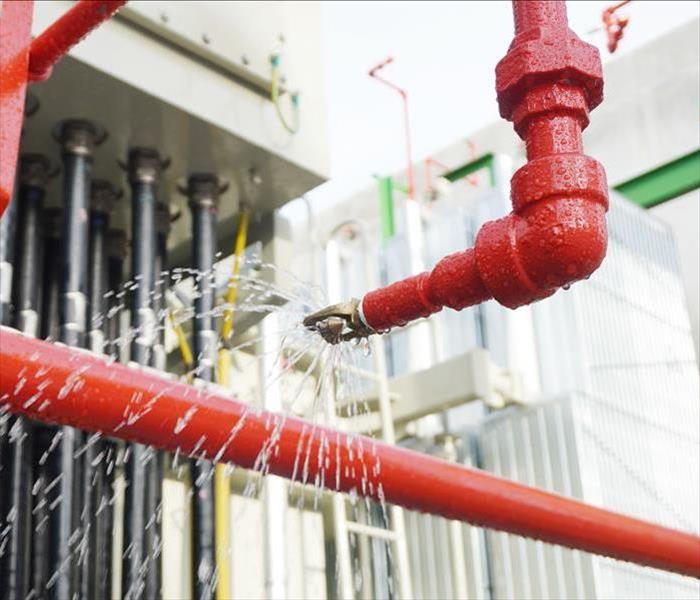Identifying Fire Risk Factors for Businesses to Prevent Revenue Loss
8/14/2023 (Permalink)
 Investing in high-quality fire safety equipment is a proactive measure that can save businesses from significant losses.
Investing in high-quality fire safety equipment is a proactive measure that can save businesses from significant losses.
As a home or property owner, protecting your investment is paramount. However, for businesses, the stakes are even higher. A fire incident can have devastating consequences, leading to significant revenue loss, property damage, and potential disruption of operations. In this blog, we will explore essential fire risk factors that businesses should be aware of to prevent revenue loss and secure their future.
1. Electrical Hazards
One of the leading causes of commercial fires is electrical hazards. Overloaded circuits, faulty wiring, and electrical equipment malfunctions can spark fires without warning. Business owners should ensure that their electrical systems are up-to-date and compliant with safety regulations. Regular inspections by certified electricians can help identify potential hazards and prevent revenue loss due to electrical fires.
2. Fire Safety Equipment
Investing in high-quality fire safety equipment is a proactive measure that can save businesses from significant losses. Fire extinguishers, smoke detectors, sprinkler systems, and fire alarms are indispensable tools in mitigating fire damage. Regular maintenance and testing of these systems are crucial to ensure their effectiveness during emergencies.
3. Human Error
Human error is an unfortunate but common factor contributing to commercial fires. Employees' awareness of fire safety protocols is vital for preventing accidents. Conducting regular fire safety training, evacuation drills, and providing clear instructions on how to handle potential fire hazards can significantly reduce the risk of fire incidents.
4. Flammable Materials and Chemicals
Many businesses deal with flammable materials and chemicals, which can pose a serious fire risk if mishandled or stored improperly. It's essential for business owners to establish strict protocols for the storage and handling of such materials. Ensuring proper ventilation, fire-resistant storage containers, and staff training in handling hazardous substances are crucial steps to avoid revenue loss from fire damage.
5. HVAC Systems
HVAC systems, if not properly maintained, can become fire hazards. Dust accumulation, electrical malfunctions, and overheating components can lead to fire outbreaks. Regular inspections and maintenance of HVAC systems can prevent fire incidents and protect businesses from revenue loss.
6. Arson and Vandalism
Unfortunately, businesses are not immune to intentional acts of arson and vandalism. Adequate security measures, such as surveillance cameras, security patrols, and well-lit premises, can deter potential arsonists and vandals, safeguarding the business from intentional fire damage.
7. Smoking Policies
If your business allows smoking on the premises, enforcing strict smoking policies is crucial. Carelessly discarded cigarette butts can easily ignite fires, leading to devastating consequences. Designated smoking areas with fire-resistant receptacles should be established to reduce the risk of fire incidents.
Preventing revenue loss due to fire damage requires vigilance, proactive measures, and a commitment to fire safety. By identifying and addressing the fire risk factors mentioned in this article, businesses can significantly reduce the likelihood of fire incidents. Implementing a comprehensive fire safety plan, investing in quality fire safety equipment, and providing staff training can go a long way in protecting your business and securing its future. Remember, preparedness is key to minimizing potential losses and ensuring the safety of your business and all its stakeholders.

 24/7 Emergency Service
24/7 Emergency Service